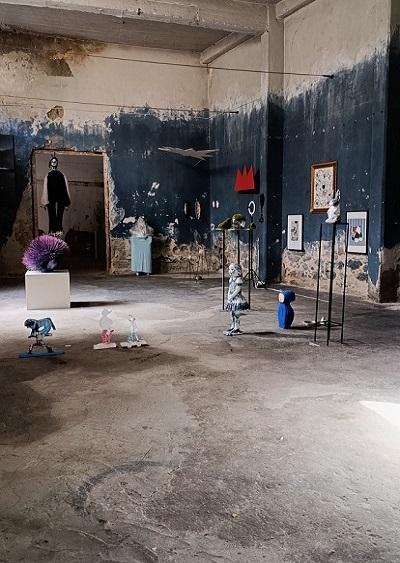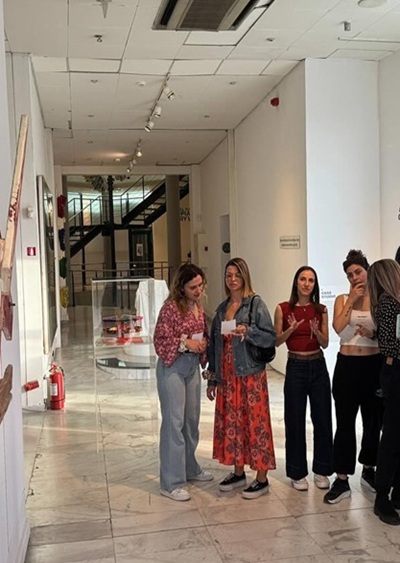
On Tuesday, February 6, 2024, with all ecclesiastical splendor, the memory of our Holy Father in Saints, Photios the Great, Patriarch of Constantinople, who is honored by the Holy Synod and the Theological Schools of Athens and Thessaloniki, was celebrated at the Holy Monastery of the Assumption of the Virgin Mary in Penteli. The meeting was presided over by His Beatitude Archbishop Ieronymos of Athens and All Greece and attended by His Eminence, Metropolitan of Laodicea, His Eminence, the Head of the Office of the Ecumenical Patriarchate in Athens. Theodoretos, the Archbishop of Laodicea, the Archbishop of the Holy Sepulchre in Athens, His Eminence Archimandrite Raphael Grivas, Synodal and other Metropolitans, as well as the Vice-Rector of the National and Kapodistrian University of Athens, Mr. Christos Karagiannis, the Presidents of the Theological Schools of Athens and Thessaloniki, Mr. Emmanuel Karageorgoudis and Mr. Chrysostomos Stamoulis, respectively, the Honorary Presidents of the four Departments of the Theological Schools, and the President of the Academic Council of the Athens Ecclesiastical Academy, Mr. Athanasios Kapsalis.
The keynote speaker was Mrs Kyriakoula Papademetriou, Professor of the Department of Social Theology and Christian Culture of the Aristotle University of Thessaloniki.The topic of her speech was: “The glow of the ancient world under the light of St. Photios. ‘Metacenοsis’ and metafunction of classical culture in Christian culture”.
In the first part of the speech, Ms Papademetriou defined the reason that led Saint Photios to read and study ancient Greek literature and to include it in his ecclesiastical and Christian discourse, while in the second part, she examined him as a reader and productive recipient of classical wisdom, following the steps of comparative analysis and the theory of reception.
By describing the process of Saint Photios’ reception of classical education, its internalization and processing, but mainly the process of its interpretation and reinterpretation, through which he achieved the transition from classical to Christian culture, the Lecturer aimed to form a clearer picture of the spiritrual and cultural process of this action of the Saint, but also of his contribution to the metacenosis (transmission) and metafunction of classical culture to Christian culture.
Papadimitriou stressed that St.Photios takes “productively” classical wisdom, since he approaches its texts with his own wisdom in Christ and takes it as a reason and stimulus to create his own text and construct his own meaning. He does not look to the classical texts for arguments to confirm his Christian positions, but he wisely elaborates their useful points and innovatively redefines classical thought in Christ. The whole result is a new work, which converses with the previous one, but deviates from it, possibly opposing, deprecating or even rejecting it. In this way, the interest shifts from the radiation of the transmitter to the light of the receiver.
She then said that the model of this creative transmutation of the meanings of classical culture into the meanings of life in Christ has already been set by the pioneer and founder of the encounter of the gospel with the nations, the apostle Paul. St. Photius followed a series of learned Fathers of the Church, such as Basil the Great, earlier, and St. Gregory Palamas, later, who accepted and made use of classical wisdom. Photius stands among them, but with a prominent difference: no one else engaged with ancient Greek literature as a critical reader and grammarian, as characterized by modern scholarship. For this reason, his work can rightly be considered programmatic for Christian, as well as universal human culture.
Concluding her comprehensive Lecture, Ms Papademetriou mentioned, among other things, that St.Photios offers a spiritual way of reading modern civilization through the perspective of Christ and with the conditions according to Christ. Whenever we are called upon to confront modern philosophy, we can come to it in the way of the Saint: Taking in the world without fear and inferiority, critique based on the proper interpretation of Christian truth, emptying ourselves of the superfluous, transmitting with awareness of human’s contemporary needs, and refunctioning in the pastoral way that the Church’s concern for human and his salvation can develop. It is a persistent and difficult process, for which we need the illumination of the Spirit to make up for our inadequacy and to fill in the “gaps” and “uncertainties” of our culture.
After the presentation there was an interesting discussion and Professor Kyriakoula Papademetriou answered questions and comments.







Leave A Comment